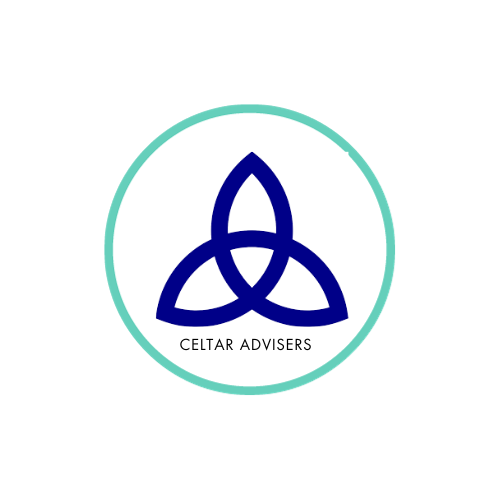Growth, recognition & quality in management consulting
The IMCA has recently released the highlights of a survey on the Irish consultancy market in 2011/12*. A briefing is being held for members on February 27th.
(You might be interested, Celtar offers advice to new consultants, follow https://celtar.ie/staging/staging/advice-for-new-consultants/ )
The main points are described below with additional commentary:
1. In 2011 the Irish market is estimated at €538m with 3,700 consultants – the increase on previous years (€438m in 2010) is based on extra practices rather than market growth alone;
(Market size is possibly larger as I suspect this is an understatement of the number of “management consultants” in the Republic of Ireland. The full number of IT consultants or new self-employed consultants may not be taken into account).
2. Practices with turnover greater than €0.5m (9% of practices) account for 68% of turnover with the remainder 32% across a large number of small practices and individual consultants;
(I suspect that the largest practices generate higher then 68% of the income looking at the size and number of assignments they deliver for MNCs, state sponsored companies, the banks including IBRC and the Central Bank, and the public sector. Much of the advice deals with the aftermath of the banking crisis).
3. Consultancy has a relatively low share of the economy in Ireland – 0.3% of GDP as against 1.14% in the UK and a 0.69% FEACO average;
(Anecdotally management consultancy is not well developed or formally regarded in Ireland. Take for example public procurement – including supplying of services to Enterprise Ireland and state sponsored agencies and quangos. The CMC accreditation is still not formally recognised, or sought for, in the public procurement of consultancy services. This lack of recognition of an international quality standard has the greatest effect on the smaller end of the market in Ireland, independent consultants and small firms).
4. Revenues in Ireland were 8% up in 2011 with an increase of 9% projected for 2012, both mainly driven by larger practices; all countries surveyed, apart from Greece and Portugal, reported growth in 2011;
(There are two consultancy markets in Ireland; the top 5 or 6 firms dominate and grow their business in terms of revenue. For the rest, independent consultants and small firms, most have experienced considerable declines in profits and turnover since the demise of the Celtic Tiger.
5. Consultancy in a recession is often an attractive career option for the newly unemployed executive. I have observed that many of these “temporary” consultants have returned to the job market after two or three years trying to build up business. Consultancy in the Recession is not for the faint hearted).
6. The market is mainly domestic with only 10% exported – at the lower end of the spectrum of countries surveyed; exports are mainly within Europe;
(One legacy of the Celtic Tiger was to keep consultants focused on opportunities in Ireland, like many other professional advisers they did not have to go abroad to find work. The Enterprise Ireland supported initiative Consulting Ireland www.consultingireland.org was designed to encourage consultants to win overseas contracts. It now appears to have lost momentum. And focus. It now includes consulting engineering firms as well as a broad range of management consultancy. There is a great opportunity now for Enterprise Ireland to revive this initiative, and ask the IMCA to run it on their behalf with appropriate funding).
7. The support staff / consultant ratio was estimated at 12%, similar to the UK;
(Consultants now utilise technology and the requirements for support staff are limited. If required even the smallest firm can access support services through subcontracting and outsourcing).
8. Average annual revenue per consultant ranges from €125k for practices of four and below to €160k for larger practices;
(As mentioned the predominance of the large consulting firms skews the average consulting fees).
9. Business Consulting is the largest service line (58%) followed by IT Consulting (16%); Outsourcing comprised 7% of the total as against 9% in both the UK and the FEACO average;
(Here we depend on a common understanding of the terms ‘business consulting’, ‘management consulting’, ‘IT consulting’ etc.)
10. Public Sector and Industry are the largest industry sectors with 25% and 21% of the market respectively.
(Yes the unreformed Public Sector absorbs the greatest proportion of consulting fees, even in recessionary times. Unfortunately the Public Sector does not seek local providers of consultancy, or other SMEs, as priority suppliers of services in its procurement processes. In fact state agencies and enterprise quangos negatively impact on the growth of a healthy consultancy market by the use of nominally paid business mentors in quasi-consultant roles).
Quality in consulting
Clients look for qualified consultants with experience and practical expertise to assist them. The internationally recognised and accredited Certified Management Consultant accreditation is a quality benchmark that should be recognised as a start by Enterprise Ireland, and all government departments, local authorities, funded agencies and quangos in their procurement processes.
The IMCA should rigorously enforce the CMC Standard, ensuring that an appropriate barrier to entry exists so new members are of a high standard, and that existing members maintain their professional practices to the highest level.
Billy Linehan, February 2012
* The 2011 / 12 FEACO (European Federation of Management Consultancies Associations) Survey of European Consultancy, for which a survey of the Irish consultancy market was completed in July / August 2012, is now available in the Members Area of the IMCA website together with a commentary on the key issues of relevance to the Irish market.
Note: the IMCA is the professional institute of management consultants and advisers in Ireland. The IMCA is authorised to award the CMC (Certified Management Consultant) designation in Ireland. The initials CMC following a consultant’s name means that he or she meets the strict certification requirements of the IMCA which are based on world class standards of competence, ethics and independence set by the ICMCI (International Council of Management Consulting Institutes). To find out more about joining the IMCA email [email protected] www.imca.ie
Billy Linehan is a business consultant, a CMC (Certified Management Consultant) since 2004 and MD of Celtar. Formerly a director of the IMCA, Billy works with the leaders of SMEs bringing clarity to business objectives and success in achieving goals.
See more about Billy http://www.linkedin.com/in/billylinehan
” Business advice Dublin “

